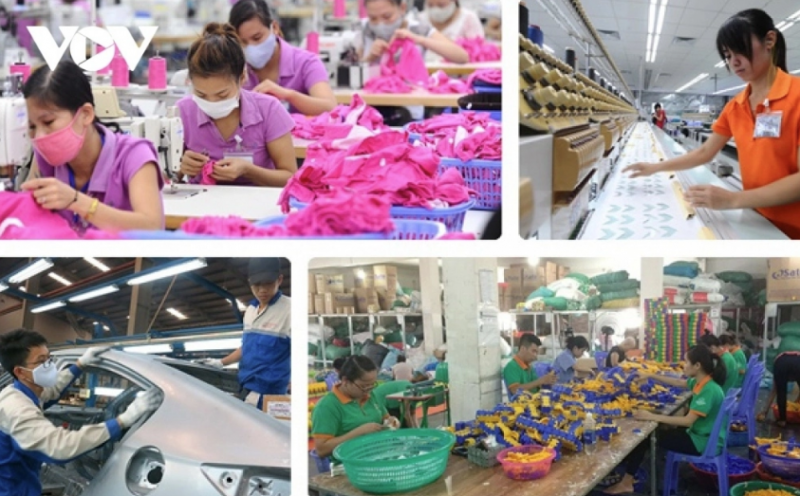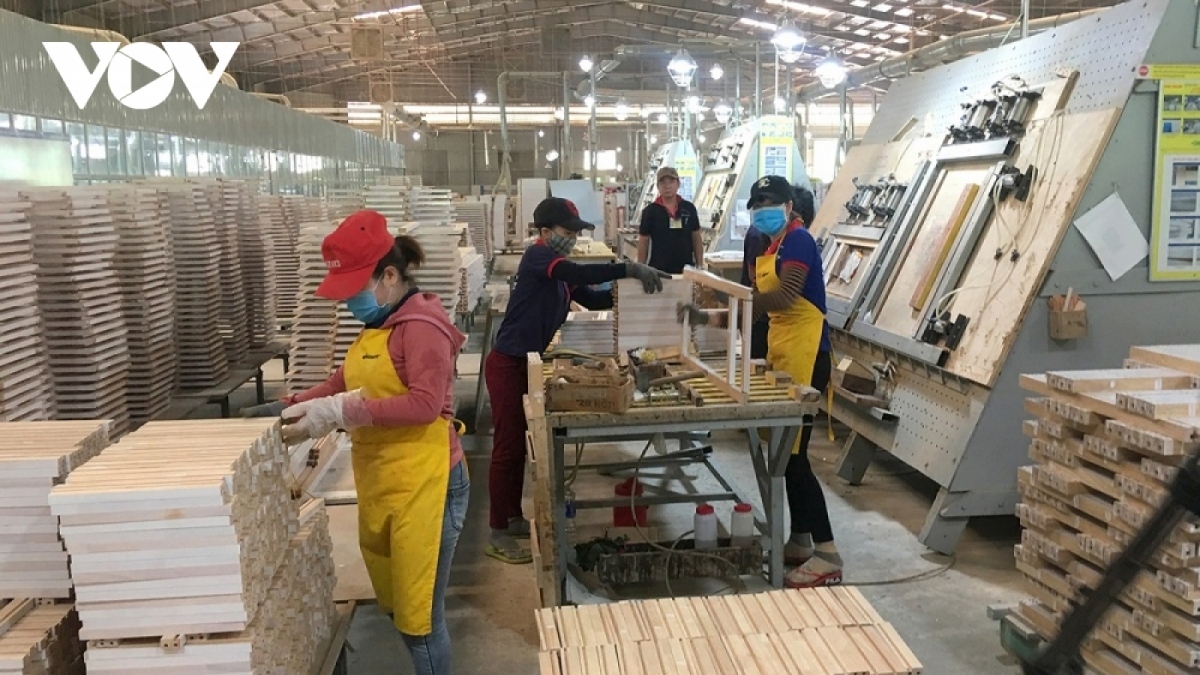 News
News
In solutions to achieve the set goals, the Industry and Trade sector emphasizes meeting standards and quality of goods, effectively exploiting Free Trade Agreements (FTAs), promoting sustainable exports .
According to the Report of the Ministry of Industry and Trade , the picture of world economic growth in 2024 continues to slow down and is not too optimistic, which will directly impact the prospects of developing economies, including Vietnam. .
Along with protectionist policies reappearing in many countries in different forms, developed countries are increasingly paying more attention to issues of consumer safety, sustainable development, and combating climate change. , thereby establishing new standards and regulations related to the supply chain, raw materials, labor, and environment for imported products, including an anti-deforestation bill, or a regulatory mechanism. EU carbon border (CBAM); Then the US enhanced and attached labor, environmental, intellectual property standards... to trade.
 |
| Promote exports in 2024. (Illustration) |
The trend of developing circular economy, green economy, and digital economy is increasingly clear. In the context that the production capacity of domestic enterprises still faces many difficulties, the Industry and Trade sector has identified 6 major tasks and solutions to support production activities and boost exports in 2024.
Deputy Minister of Industry and Trade Phan Thi Thang said: "Continue to focus on removing difficulties and obstacles and supporting businesses to restore production and business to bring large and important industrial projects to completion. put into operation to increase production capacity; support businesses in finding export markets; focus on effectively exploiting free trade agreements (FTAs) that have taken effect, signed and implemented. New agreements to expand and diversify markets, import and export products, and supply chains.
Strengthen the exploitation of neighboring markets with potential, shifting strongly to official exports associated with brand building and promoting sustainable exports. Continue to innovate and improve the effectiveness of trade promotion."
According to experts, the European Union (EU) is Vietnam's third largest export market with many key industrial goods as well as agricultural and food products in which Vietnam has strengths.
However, recently, the advantages of Vietnamese goods have been somewhat affected, Vietnamese businesses are facing many challenges with the need to meet new regulations and high standards of quality. goods, environmental protection, sustainable development... collectively referred to as EU green standards.
With the carbon border adjustment mechanism (CBAM), even in the immediate future, it will not only directly impact the six industrial sectors that emit a lot of carbon including iron and steel, cement, fertilizer, aluminum, electricity and Hydrogen (according to regulations, the first report will have to be submitted before January 31, 2024) which will indirectly impact industries that consume a lot of raw materials and energy.
A series of new environmental standards will be applied by the EU in the near future, such as the EU's "green deal" which includes a package of actions to reduce greenhouse gas emissions and minimize resource use while achieving increased growth. economic growth, of which the CBAM mechanism is just one connotation.
Also within the framework of the green agreement, in June 2023, the EU issued anti-deforestation regulations (EUDR), effective from the end of 2024 to prevent the import of goods that cause deforestation and forest degradation. Companies trading in wood, coffee, cocoa, rubber, soybeans, cattle, palm oil... in the EU must prove that the goods are not related to deforestation or contribute to forest degradation.
Mr. Luong Hoang Thai - Director of the Multilateral Trade Policy Department, Ministry of Industry and Trade, said: "Our business community must also take into account these long-term trends to make adjustments, from which we can enter the EU market.
We see that when foreign investors enter Vietnam, they also have strong commitments to environmental protection to combat climate change. For example, zero carbon emissions, they even committed to planting forests in Vietnam to compensate for the carbon emitted from their factories. These are the things that we hear and see to consider as models, from which to adjust our businesses. If we want to do long-term business with this market, we must also meet their regulations, especially is to meet the concerns of consumers in this demanding market."
Sharing about incentive mechanisms for green industrial and commercial development as well as the national action plan to implement circular economy - a tool for Vietnam to bring net emissions to zero by 2050, Associate Professor. Dr. Nguyen Dinh Tho - Director of the Institute of Natural Resources and Environmental Policy Strategy, Ministry of Natural Resources and Environment emphasized: "To implement these things, Vietnam certainly still requires 3 requirements that we often have to The proposal is to meet financial requirements; the second is to strengthen capacity; and the third is to transfer technology.
And now in the proposal for a national action plan to implement circular economy, we suggest that ministries, branches and localities integrate circular economy into planning, plans and strategies; and require businesses to integrate circular economy into sustainable production and consumption chains - from exploration, exploitation investigation, production processing, consumption distribution, classification, collection, transportation, storing, recycling, reusing waste...".
Along with complying with green production and distribution chain solutions, penetrating partner markets requires many other skills.
 |
| According to experts, the European Union (EU) is Vietnam's third largest export market with many key industrial goods as well as agricultural and food products in which Vietnam has strengths. (Illustration) |
Ms. Nguyen Thi Huong Lien - Deputy General Director of Sao Thai Duong Joint Stock Company shared her experience: "We also invited a number of consultants with British and European expertise to support us in how to to make sure that my products and research really do not have any problems with professional practice laws for the UK market.
And in terms of trade support, the trade counselor and the Vietnamese embassy have helped us a lot. So what is the experience here? I think that for businesses that have never exported to the UK or Europe, the support of trade representatives of the Ministry of Industry and Trade in those countries is very important. ".
Promote trade promotion of goods into markets, in which the EU continues to be the market prioritized by the Ministry of Industry and Trade to support businesses.
According to Mr. Vu Ba Phu - Director of the Department of Trade Promotion, Ministry of Industry and Trade, in 2024, the Ministry of Industry and Trade will deploy a series of technical assistance and capacity building programs, with the cooperation of other organizations. international organization to equip manufacturing industries with knowledge and skills, especially for each industry related to CBAM regulations, and regulations related to green standards of Germany and the EU.
Specifically for export promotion, the Ministry of Industry and Trade will coordinate with the Vietnamese trade system and Vietnamese representative agencies abroad to best provide new regulations and new instructions related to the agreement. green and conditional business as well as circular economy for domestic manufacturing industries, to best and most effectively meet new regulations.